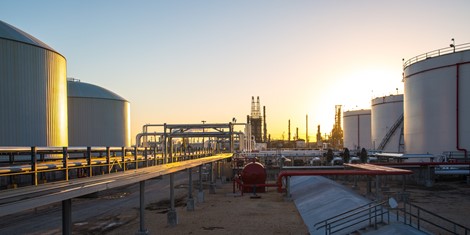Key Factors Influencing Fuel Oil Prices
This article explores the key elements that influence fuel oil prices worldwide, including demand patterns, supply levels, geopolitical events, and market speculation. It explains how traders and industries monitor these factors to anticipate price changes and offers insights into OPEC's role in price regulation. The piece emphasizes the importance of staying informed through official sources and highlights the ongoing reliance on fossil fuels in the global economy amidst evolving energy landscape trends.
Fuel oil, along with diesel and kerosene, remains one of the most demanded commodities worldwide. These fuels are essential for transportation, heating, manufacturing, and cooking. Because of their global importance, their prices fluctuate based on various influences, with the health of the world economy being a primary factor. Economic policies, geopolitical events, and market trends all contribute to these shifts. Understanding what drives fuel oil prices helps consumers, traders, and industries make informed decisions in this volatile market.
Major elements shaping fuel oil pricing
Demand fluctuations significantly impact prices. For example, during summer, increased travel boosts demand and prices, whereas winter sees lowered demand, causing prices to drop. Market forecasts often analyze travel statistics and weather patterns to predict price changes.
Supply levels at any moment also influence prices. Notably, the surge in U.S. shale oil production from 2011 to 2014 caused an oversupply, prompting crude prices to fall sharply in subsequent years.
Projected future supplies also play a role. Traders assess potential disruptions from natural disasters or geopolitical events, adjusting prices preemptively. Strategic reserves can be tapped into if supply shortages threaten to elevate prices excessively, following regulations like the Energy Policy and Conservation Act of 1975.
Disasters, whether natural or man-made, can impact oil production. While major spills may not significantly affect global prices due to the reserves' size, severe disruptions can cause notable price spikes. Similarly, international crises involving key oil-producing nations tend to increase prices sharply by limiting supply and boosting demand.
Market trading activities, especially futures and options, also influence prices. These financial instruments allow traders and industries to hedge risks or speculate on future price movements, adding to price volatility. Additionally, speculative trading based on anticipated economic growth can inflate oil prices even when physical supplies are stable.
OPEC, comprising 13 member nations controlling about 36% of world oil output, plays a crucial role in setting prices by regulating supply. Their decisions often impact global fuel costs, affecting heating, transportation, and industrial costs worldwide.
Overall, political stability, supply chain conditions, and market sentiment determine short-term price variations. Once disruptions resolve, prices tend to stabilize. To stay updated on fuel oil prices, monitoring sources like the Energy Information Administration or financial news platforms is recommended. Investing in oil markets carries risks but offers potential for substantial returns, especially given ongoing reliance on fossil fuels for global economic activities.
Despite advances in alternative energy, carbon-based fuels remain dominant in transportation and manufacturing. Understanding the factors influencing fuel oil prices helps stakeholders navigate this vital energy sector effectively.









